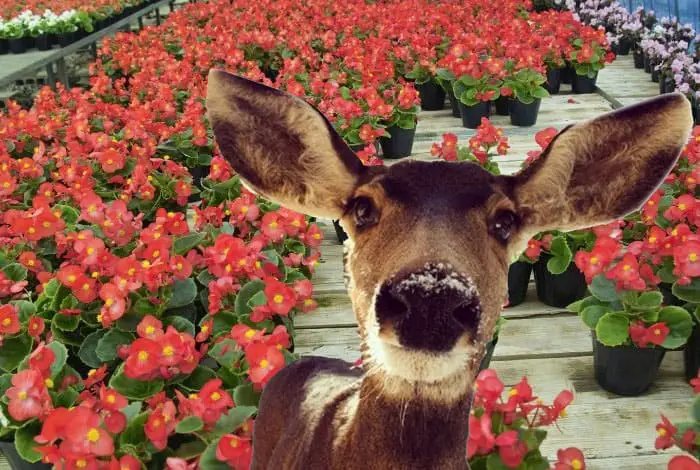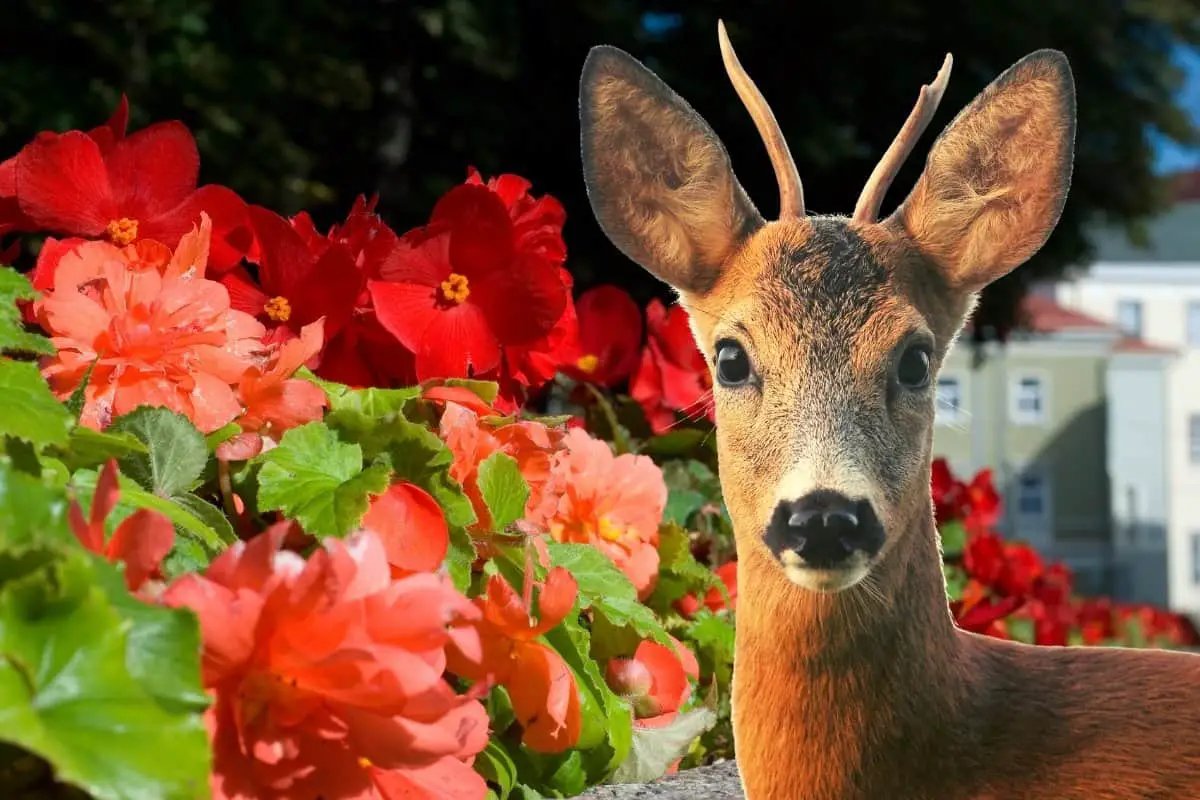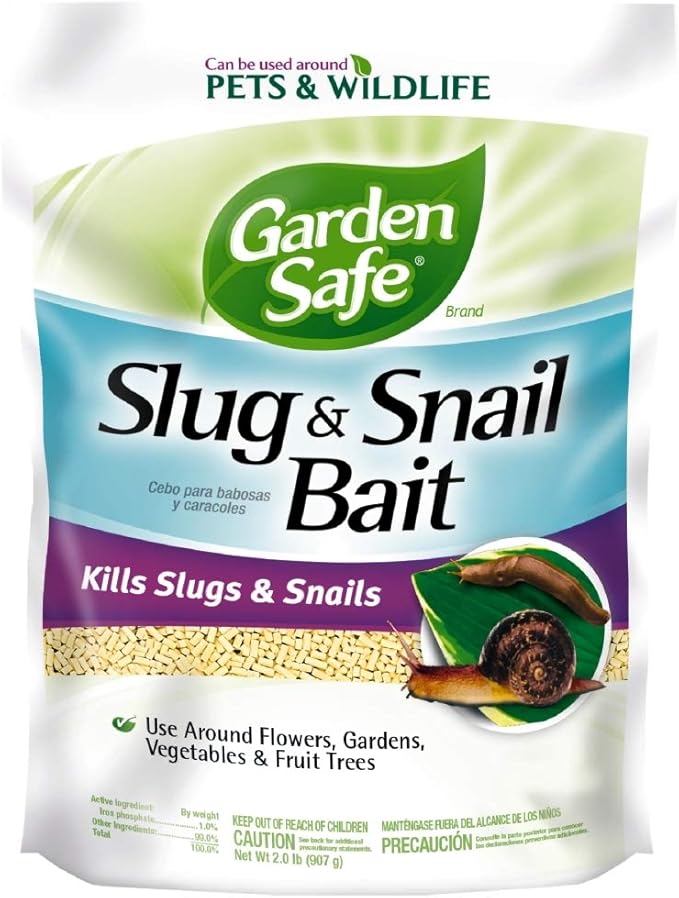Last Updated on January 20, 2022 by
Before anything else, it will be critical for a gardener to find out do deer eat begonias if you plan on growing them in your garden.
Deer have an insatiable appetite that does not easily differentiate the plants they eat from those they don’t. Begonias are unappetizing to deer thus only eaten if there is nothing else in sight.
It is therefore recommended to consider planting ornamentals that experts call deer-resistant. A fence is also ideal to keep them away from your garden making you worry less. Remember these animals are not the only potential threat to your begonias.
Learn how to protect your begonias not just from one enemy but from other creatures.
Do Deer Eat Begonias?
Begonias are not deer’s first choice of food. But they still eat them if they are hungry enough, and they are the only convenient plants available. A hungry deer is an indiscriminative feeder. Though begonias are not their primary best meal, they will still consume them if need be. This happens to any plant that‘s why it’s impossible to call any flower deer-proof.
The best way to protect begonias from these animals is to incorporate a variety of strategies that can protect your plants.

How To Protect Your Begonias From Deer
Having learned that these animals still eat begonias if they happen to be the only ones on sight, let’s see how we can protect them.
1. Use Deer Repellant. Deer repellant is available in several options – you can make your own or purchase it online. Whichever option you choose, remember it is essential to apply regularly to keep the animals away. These repellants are rinsed off by rain, and they do not last indefinitely.
2. Fence your Garden. Fencing is another option that helps protect your begonias. Put up a fence that is at least 6 to 8 feet high to keep deer from jumping into your garden. Remember they are excellent jumpers and a meal is motivation enough for them.
3. Grow Plants and Flowers that Deer do not Like. This is a very natural way to protect your begonias by surrounding them with other plants and flowers that keep deer away. This animal does not like daffodils, poppies, etc. Make your garden as uninviting as possible by growing these unfavorable plants. If deer notices your garden is full of flowers that they don’t want, they will keep away.
4. Plant your Begonias Close to Home. A final way to protect your begonias is to plant them close to your house. This will enable you to see any deer activity and scare them away. If you own a dog, it will help scare the deer away. Their bark frightens the deer and keeps it away from your home.
Using at least 2 or more of these steps will increase your likelihood of success in protecting your begonias. Also, you can opt to change strategies now and then to keep the deer at bay. With time, deer grow bolder and get used to one method of repelling them. Keeping them on their toes is an excellent way to protect your beautiful plants.
Find out How to Keep Deer Out of Your Garden? Best Natural Deer Repellents
Besides Deer What Else Harms Begonias
- Rabbits. They are also known to eat begonias. Though they may not eat a lot they can be quite destructive. It is critical to keep them away from the same way you keep the deer.
- The main threat to begonias is not large animals but small ones too – mainly insects. These tiny insects can do so much damage to your begonias and must be eliminated.
- Aphids. They are the primary enemy of your begonias. These insects damage the flowers by eating the stems and leaves leading to weakening of the plant or even death. Regular watering of your begonia plant helps control aphids. If you notice too many aphids feeding on your plants, you can use insecticidal soap to treat them.
- Snails and slugs. These are also enemies of begonias. They eat them at night and leave signs of destruction on the leaves. Use bait that can eliminate all the slugs and snails with ease.
Garden Safe 4536 Slug & Snail Bait
Some additional pests that are easy to manage include whiteflies, mealybugs, earwigs, and caterpillars. Some insects can be controlled using insecticidal soap. Caterpillars can be removed by hand and placed away from your flowers. The same bait for snails and slugs can be used for earwigs.
FAQs
Do Deer Eat Begonias?
There’s no doubt about it: deer are some of the most destructive animals in the world. They can be a nuisance for homeowners, farmers and landscapers, and they cause massive amounts of damage to crops, trees and property.
Deer are not known to eat begonias too often, but they will if they are hungry enough. This plant is a member of the onion family (Allium), but it is not related to the onion, garlic, leek, or chive. Begonias are popular garden plants and are grown for their beautiful flowers. They have many varieties and come in a wide range of colors, including white, yellow, orange, red, purple, pink, and green.
They grow easily in moist, fertile soil. What you should know Begonias are easy to grow and can be purchased from local nurseries or online. They require little care and do well in full sun. The leaves of begonias are edible. You may eat them raw, but they are usually cooked. Begonias are used in salads, stews, soups, and stir-fries.
How do you keep deer from eating begonias?
I've never tried to protect my begonias from deer, but I have seen people who do. One of the easiest ways is to put a layer of bark on top of your plants. It will look ugly, but it will work. If you want something that won't get eaten, try this: Buy a small amount of aluminum foil and some rubber bands. Make sure you get a thin roll that will wrap around your plant and stay in place. Then put on your rubber bands, and wrap the roll around your plant. This will protect it from both the deer and the birds, who can't get through the foil. It will also protect you from getting pricked by thorns.
What plants do deer hate the most?
Deer hate many things, but some things they just don’t like. If you know what plants they hate, then you can use that knowledge to your advantage when planning your garden.
The number one plant deer don’t like is garlic mustard.
What flowers will deer not eat?
Deer are omnivores, meaning they eat both plants and animals, so there is no such thing as a “deer-proof” vegetable garden. However, there are things you can do to make your vegetables less appealing to deer. There are a lot of plants that deer will avoid eating. I would think the most obvious ones are those that have sharp spines, thorns, or other points that can injure them. There are also some plants with poisonous or toxic compounds. Some plants are simply too large for them to eat without harming themselves. However, there are many plants that deer will eat and enjoy.
Conclusion
FAQs
Do Deer Eat Begonias?
There’s no doubt about it: deer are some of the most destructive animals in the world. They can be a nuisance for homeowners, farmers and landscapers, and they cause massive amounts of damage to crops, trees and property.
Deer are not known to eat begonias too often, but they will if they are hungry enough. This plant is a member of the onion family (Allium), but it is not related to the onion, garlic, leek, or chive. Begonias are popular garden plants and are grown for their beautiful flowers. They have many varieties and come in a wide range of colors, including white, yellow, orange, red, purple, pink, and green.
They grow easily in moist, fertile soil. What you should know Begonias are easy to grow and can be purchased from local nurseries or online. They require little care and do well in full sun. The leaves of begonias are edible. You may eat them raw, but they are usually cooked. Begonias are used in salads, stews, soups, and stir-fries.
How do you keep deer from eating begonias?
I've never tried to protect my begonias from deer, but I have seen people who do. One of the easiest ways is to put a layer of bark on top of your plants. It will look ugly, but it will work. If you want something that won't get eaten, try this: Buy a small amount of aluminum foil and some rubber bands. Make sure you get a thin roll that will wrap around your plant and stay in place. Then put on your rubber bands, and wrap the roll around your plant. This will protect it from both the deer and the birds, who can't get through the foil. It will also protect you from getting pricked by thorns.
What plants do deer hate the most?
Deer hate many things, but some things they just don’t like. If you know what plants they hate, then you can use that knowledge to your advantage when planning your garden.
The number one plant deer don’t like is garlic mustard.
What flowers will deer not eat?
Deer are omnivores, meaning they eat both plants and animals, so there is no such thing as a “deer-proof” vegetable garden. However, there are things you can do to make your vegetables less appealing to deer. There are a lot of plants that deer will avoid eating. I would think the most obvious ones are those that have sharp spines, thorns, or other points that can injure them. There are also some plants with poisonous or toxic compounds. Some plants are simply too large for them to eat without harming themselves. However, there are many plants that deer will eat and enjoy.
Keeping deer, rabbits, and other animals away from destroying your begonias is important and requires some effort. But these beautiful flowers are worth every effort you put in. Plus you cannot just sit back and watch deer devour your plants with no mercy.
We hope you feel more confident and can protect your begonias from animals and insects alike with ease. Go on and be a hero for your begonias!
Caroline is a gardener who loves to get down to the nitty–gritty of gardening. She proudly proclaims herself as a ‘dirt worshipper‘ and can often be found deep in the garden, covered in soil and singing to her plants. As a self–proclaimed ‘plant whisperer‘, Caroline believes that plants need love and attention just like any other living thing, and she loves to give them both. When she‘s not tending to her garden, you can often find her researching the latest gardening trends, or teaching others how to make their gardens thrive



